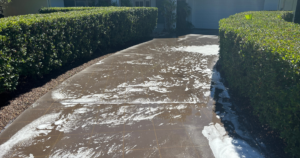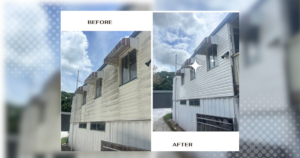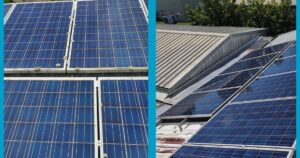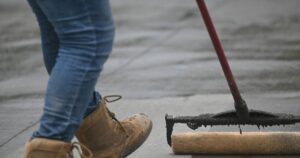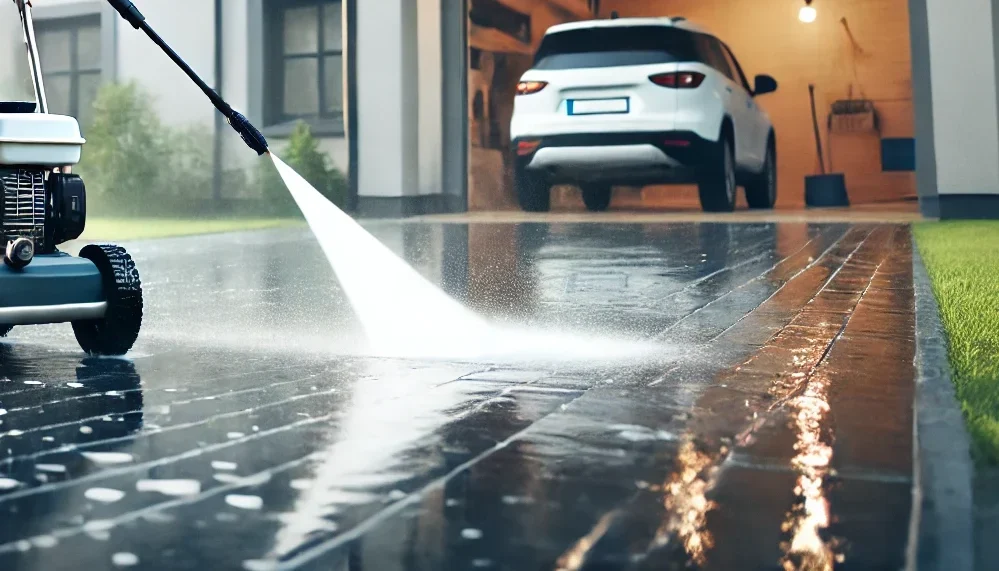
The Supreme Guide to Exterior Cleaning
BLOG
The Importance of Concrete Sealing After Pressure Cleaning
Maintaining the aesthetic appeal and structural integrity of your property is a priority for many homeowners. One effective way to achieve this is through pressure cleaning, which efficiently removes dirt, grime, and stains from concrete surfaces. However, to ensure long-lasting results and protect your investment, it’s crucial to follow up with concrete sealing. This blog explores the importance of concrete sealing after pressure cleaning and why it’s a must for every property owner.
What is Concrete Sealing and How Does it Work?
Concrete sealing is a protective process applied to concrete surfaces after they have been thoroughly cleaned. The sealant forms a barrier over the surface, preventing water, oil, chemicals, and other contaminants from penetrating the concrete. There are various types of sealers, including penetrating sealers, which absorb into the concrete, and surface sealers, which form a protective layer on top.
The primary function of concrete sealing is to enhance the durability and longevity of your concrete surfaces. By blocking the pores in the concrete, sealers prevent moisture absorption, which can lead to cracking, spalling, and other forms of deterioration. Additionally, sealers can provide a glossy or matte finish, enhancing the visual appeal of your driveway, patio, or any other concrete surface.
Why Concrete Sealing is a Must After Pressure Cleaning Your Driveway
- Protection Against Stains and Spills After pressure cleaning, your concrete surfaces are more susceptible to stains from oil, grease, and other substances. Sealing your concrete provides a protective layer that repels these contaminants, making it easier to clean spills and preventing unsightly stains. This is particularly important for driveways, which often encounter vehicle fluids and other staining agents.
- Prevention of Water Damage Unsealed concrete can absorb water, leading to a range of issues such as cracking, scaling, and even structural damage. In colder climates, water trapped in the concrete can freeze and expand, causing the surface to crack. Sealing your concrete after pressure cleaning prevents water from penetrating the surface, protecting against these potential hazards and extending the life of your concrete.
- Enhanced Durability and Longevity Concrete sealing strengthens the surface, making it more resistant to wear and tear. Whether it’s foot traffic, vehicle movement, or exposure to harsh weather conditions, a sealed concrete surface is better equipped to withstand the elements. This means fewer repairs and replacements in the long run, saving you time and money.
- Improved Aesthetic Appeal A well-maintained driveway or patio can significantly enhance the curb appeal of your property. Concrete sealing not only protects but also enhances the appearance of your concrete surfaces. Sealers can add a glossy finish, making the surface look fresh and new. Some sealers also offer UV protection, preventing colour fading and maintaining the vibrant look of your concrete.
- Easy Maintenance Sealed concrete surfaces are much easier to clean and maintain. The protective barrier prevents dirt and grime from settling into the pores, making regular cleaning more effective. This means you can keep your driveway or patio looking pristine with minimal effort.
In conclusion, concrete sealing is an essential step after pressure cleaning that offers numerous benefits. It protects your concrete surfaces from stains, water damage, and wear, while also enhancing their appearance and longevity. Investing in professional concrete sealing services is a wise decision that ensures your property remains in top condition, providing long-term value and peace of mind. Whether you’re looking to maintain the beauty of your driveway or extend the life of your patio, concrete sealing is a must-have for every property owner.
SEE OTHER POSTS
TOPICS
- COMMERCIAL EXTERIOR CLEANING
- CONCRETE PRESSURE CLEANING
- CONCRETE SEALING
- DRIVEWAY CLEANING
- GRAFFITI REMOVAL
- HOUSE WASHING
- PAVEMENT CLEANING
- PLAYGROUND EQUIPMENT CLEANING
- PRESSURE CLEANING
- PUBLIC VENUES AND SPACES
- ROOF CLEANING
- SHADE SAIL CLEANING
- SOFTWASHING
- SOLAR PANEL CLEANING
- SYNTHECTIC SPORTS SURFACE

About the Author
John Carew
John is the go-to in this space for exterior pressure washing, bringing years of hands-on experience to the industry. As the owner of a pressure washing company, he specializes in commercial, industrial, and residential pressure washing solutions. With several decades of experience in contract service-based business, sales, and management, John has built a reputation for delivering top-quality results. His expertise ensures that every project is handled with professionalism, efficiency, and a commitment to excellence. Always looking to connect with industry professionals, John is dedicated to maintaining the highest standards in the pressure washing business.



